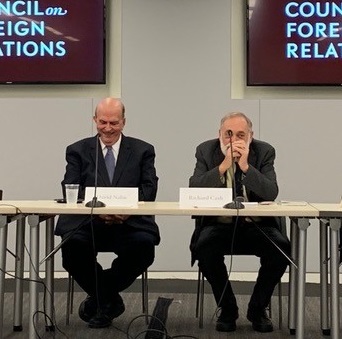paul romer free the market for lowest cost live saving ideas
Thursday, April 18, 2019 https://www.cfr.org/event/simple-solution-saved-fifty-four-million-lives

In 1968, two recent U.S. medical school graduates working in Dhaka, Bangladesh, developed oral rehydration solution—a mixture of water, sugar, and salt—that the British medical journal the Lancet has hailed “potentially the most important medical advance of the twentieth century.” These two doctors, Richard Cash, senior lecturer in the Department of Global Health and Population at the Harvard T.H. Chan School of Public Health, and David Nalin, professor emeritus at the Center for Immunology and Microbial Diseases at Albany Medical College, discussed the fifty-year legacy of their invention and the lessons that legacy offers to the health challenges emerging in lower income nations today.
https://www.cfr.org/event/simple-solution-saved-fifty-four-million-lives

In 1968, two recent U.S. medical school graduates working in Dhaka, Bangladesh, developed oral rehydration solution—a mixture of water, sugar, and salt—that the British medical journal the Lancet has hailed “potentially the most important medical advance of the twentieth century.” These two doctors, Richard Cash, senior lecturer in the Department of Global Health and Population at the Harvard T.H. Chan School of Public Health, and David Nalin, professor emeritus at the Center for Immunology and Microbial Diseases at Albany Medical College, discussed the fifty-year legacy of their invention and the lessons that legacy offers to the health challenges emerging in lower income nations today.
https://www.cfr.org/event/simple-solution-saved-fifty-four-million-lives



No comments:
Post a Comment